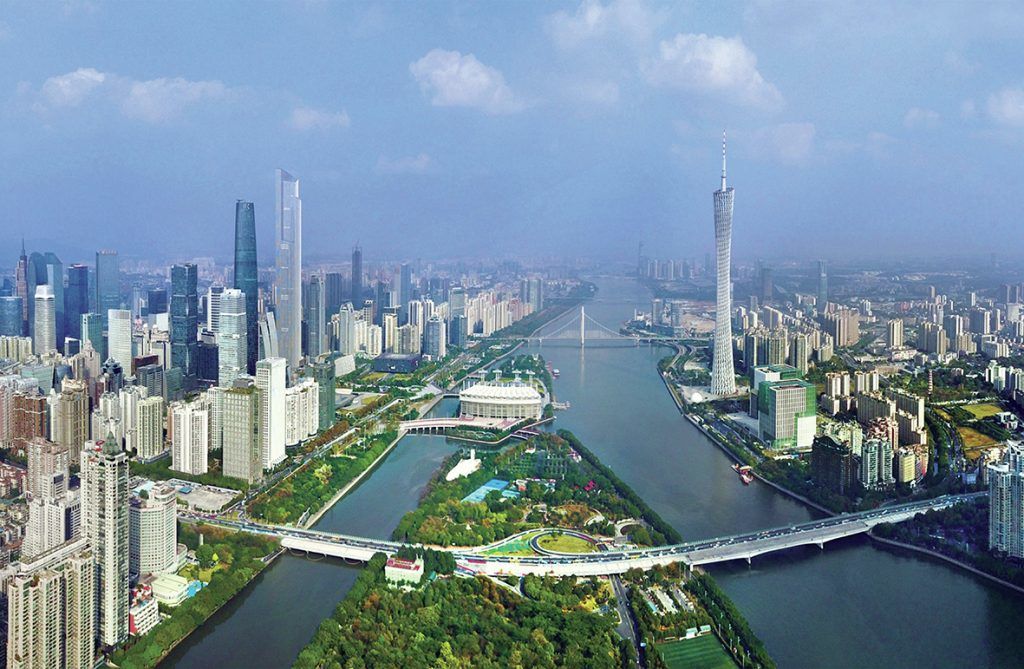The Guangdong-Hong Kong-Macau Greater Bay Area (GBA) is an ambitious national plan seeking to combine the two Special Administrative Regions of Hong Kong and Macau with nine cities across the Pearl River Delta.
The GBA strategy is also an important component of China’s “Belt and Road Initiative”. Released in February 2019 and elevated into the central government agenda, the blueprint for the GBA underscores China’s efforts towards “high-quality” economic development and opening-up to the outside world (China’s Opening-up Strategy since the 1970s). The GBA is expected to become the most open, market-oriented, and innovative pole of economic growth in China. If successful, it will become an urban mega-cluster of 70 million people, with an estimated GDP of USD1.64 trillion.
However, the outbreak of COVID-19 in early 2020 casts a shadow over global economic development. COVID-19 has slowed economic growth, increased unemployment, and raised poverty and hunger on a global basis, and quashed the GBA’s ambition of rapid growth. The flows of people, goods, and capital in the GBA has slowed significantly as a result of the virus outbreak.
After one year of fighting against the virus, enterprises in the GBA have gradually adjusted to the “new normal” in the aftermath of the epidemic. The pandemic has intensified trade protectionism and aggravated already existing international trade barriers. Facing the “great change that has not been encountered in a century”, the GBA is in the process of building more resilient and secure international industrial chains, supply chains, and value chains.
In the post-pandemic era, enhancing the stable development of the GBA and giving play to its strength to promote and boost high-quality development of the “Belt and Road Initiative” is the key to successfully accelerating economic recovery.
How is the GBA going to execute a healthier sustainable development strategy post-pandemic? Firstly, we must see the current opportunities and challenges, and learn how to turn the crisis into opportunities. While the COVID-19 pandemic posed real challenges to the GBA companies, it also prompted the companies to transform themselves, enhance efficiency, improve quality and lower costs, and even brought development opportunities to some industries.
For example, the home quarantine policy nurtured numerous online consumers, and many traditional trading companies joined e-commerce delivery modes. Hence, related industries such as digital trade, online learning, and distance medical solutions are also growing. Another example is in the area of conventions and exhibitions.
The long-established “China Import and Export Fair” held in Guangzhou established an online version, which offers an excellent opportunity for the development of the digital economy in China. With sound network infrastructure, the GBA should seize this opportunity and strive to develop the digital economy. Besides, the government needs to formulate a long term plan, implement preferential fiscal policies to support companies in high-tech industries which will become the engine of sustainable development.

Green finance is also considered as a new driver of economic recovery in the post-epidemic era. COVID-19 has highlighted the urgent need to consider resilience in finance – not just in the financial system itself, but the role of capital and investors in making economic and social systems more dynamic and able to withstand external shocks.
These include risks associated with climate change, which, beyond the pandemic, are perhaps the most pressing challenges to financial stability and resilience. In September 2020, the GBA Green Finance Alliance was established in Guangzhou. The members of the alliance include the Green Finance Committee of Guangdong Finance Society, Green Finance Committee of Financial Society of Shenzhen Special Economic Zone, Hong Kong Green Finance Association, and the Macau Monetary Authority.
The development of green finance in the GBA coincides with the “GBA Planning Framework” which explicitly proposed that there should be increased and further cooperation among Guangdong, Hong Kong, and Macau so as to develop an innovation-centered economic system and development mode by 2035. The idea is to turn these into brand-new “intelligent cities”.
One of the purposes of building an intelligent city is to enable ease of living for inhabitants facilitated by innovative technologies and to use them to effectively save resources, protect the environment, mitigate pollution, and create a healthier and more comfortable living environment. Specifically, cleaner air quality, healthier water, effective waste management and enhanced biodiversity protection not only reduce the vulnerability of communities to pandemics but improve resilience. Eventually other societal benefits will be achieved such as increased economic activity, income, jobs and reduced inequalities.
The pandemic has led all countries around the globe to a new understanding of globalization and also brought us to a new realization of how closely they are all interrelated. The GBA is a significant platform to deeply implement China’s opening-up strategy, and the major demonstration area of high quality development.
COVID-19 has exacerbated inequities and underscored the importance of companies expanding their strategies and risk management processes to engage key stakeholders beyond shareholders. Nevertheless, it is good to recognize that policymakers and businesses in the GBA are working to rebuild the economy with the goal of achieving sustainable development.
The possible silver lining in this devastating crisis is to accelerate the transition to a more circular, inclusive and sustainable economy. In the post-pandemic era, the new challenges and new opportunities to be faced in China may first be reflected in the GBA by itself taking the lead in forming a new development landscape.















